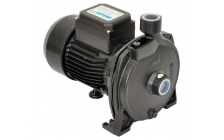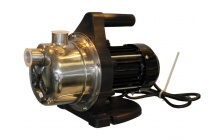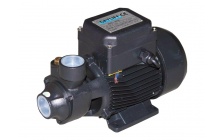Water pumps are essential tools in many industries and households. They are used for various purposes, such as irrigation, water supply, and drainage. With so many types of water pumps available in the market, choosing the right one for your needs can be challenging. This guide will help you understand the different types of water pumps and their applications, so you can make an informed decision.
Submersible Water Pump:
Submersible water pumps are designed to operate underwater. They are commonly used in wells, boreholes, and other deep water sources. These pumps are efficient and easy to install, making them a popular choice for domestic and agricultural use.
Solar Water Pump:
Solar water pumps are powered by solar energy, making them an eco-friendly option. They are ideal for remote areas where there is no access to electricity. These pumps are also low-maintenance, as they do not require fuel or oil changes.
Electric Water Pump:
Electric water pumps are powered by electricity and are widely used in households and small-scale industries. They are easy to operate and maintain and are available in various sizes and capacities.
Diesel Water Pump:
Diesel water pumps are commonly used in large-scale industries and construction sites. They are powerful and can handle large volumes of water. However, they require regular maintenance
capacities.
Diesel Water Pump:
Diesel water pumps are commonly used in large-scale industries and construction sites. They are powerful and can handle large volumes of water. However, they require regular maintenance and are not as eco-friendly as other types of water pumps.

Centrifugal Water Pump:
Centrifugal water pumps use centrifugal force to move water. They are commonly used in industrial and agricultural applications. They are efficient and can handle large volumes of water, but they require regular maintenance.
Agricultural Water Pump:
Agricultural water pumps are designed for use in farms and other agricultural settings. They are used for irrigation, drainage, and other water-related applications. These pumps come in different sizes and capacities, depending on the specific needs of the user.
Irrigation Water Pump:
Irrigation water pumps are used for agricultural irrigation purposes. They are designed to pump water from a source to a field or crop. These pumps come in different sizes and capacities, depending on the size of the farm and the water requirements.
Borehole Water Pump:
Borehole water pumps are used to pump water from deep underground sources, such as wells and boreholes. They are available in different sizes and capacities, depending on the specific needs of the user.
Domestic Water Pump:
Domestic water pumps are designed for household use, such as supplying water to a home or garden. They are available in different sizes and capacities, depending on the specific needs of the user.
Portable Water Pump:
Portable water pumps are lightweight and easy to carry, making them ideal for emergency situations. They are commonly used for flood relief, firefighting, and other similar applications.
Hand Water Pump:
Hand water pumps are manually operated and are ideal for use in remote areas where there is no access to electricity. They are easy to use and maintain and are commonly used for domestic and agricultural purposes.
Deep Well Water Pump:
Deep well water pumps are designed for use in deep water sources, such as wells and boreholes. They are efficient and can handle large volumes of water. These pumps come in different sizes and capacities, depending on the specific needs of the user.
Shallow Well Water Pump:
Shallow well water pumps are designed for use in shallow water sources, such as rivers and lakes. They are efficient and can handle small to medium volumes of water.
Booster Water Pump:
Booster water pumps are used to increase the water pressure in a system. They are commonly used in households and small-scale industries.
High-Pressure Water Pump:
High-pressure water pumps are designed to handle high volumes of water at high pressures. They are commonly used in industrial and construction settings.
Motor:
The motor is the power source of the water pump. It is responsible for driving the impeller, which creates the centrifugal force that moves the water. Water pump motors are available in different sizes and capacities, depending on the specific needs of the user. They can be powered by electricity, diesel, or solar energy.
Installation:
Proper installation is crucial for the efficient and safe operation of a water pump. The installation process will depend on the type of pump and the specific application. It is important to follow the manufacturer's instructions and guidelines to ensure that the pump is installed correctly.
Repair:
Water pumps require regular maintenance and occasional repairs to ensure that they operate efficiently and effectively. Common issues that may require repair include leaks, clogs, and malfunctioning motors. It is important to address any issues promptly to prevent further damage to the pump.
Maintenance:
Regular maintenance is essential to ensure that a water pump operates at peak efficiency. Maintenance tasks may include cleaning the impeller and other components, checking for leaks, and replacing worn-out parts. It is important to follow the manufacturer's guidelines and recommendations for maintenance.
Controller:
Water pump controllers are used to control the operation of the pump. They can be used to turn the pump on and off, control the speed of the motor, and monitor the pressure and flow rate of the water. Water pump controllers are available in different types and configurations, depending on the specific needs of the user.
Accessories:
There are various accessories available for water pumps, such as hoses, fittings, and valves. These accessories are designed to enhance the performance and functionality of the pump. It is important to choose accessories that are compatible with the pump and the specific application.
Supplier:
Choosing a reliable and reputable water pump supplier is important to ensure that you get high-quality products and services. A good supplier should have a wide selection of pumps and accessories, knowledgeable staff, and excellent customer service.
Manufacturer:
Choosing a water pump manufacturer with a good reputation for quality and reliability is essential to ensure that you get a durable and efficient product. A reputable manufacturer should have a proven track record of producing high-quality pumps, knowledgeable staff, and excellent customer service.
Price:
The price of a water pump will depend on several factors, such as the type of pump, the capacity, and the brand. It is important to choose a pump that meets your specific needs and budget. However, it is also important to consider the long-term costs, such as maintenance and repairs, when making a purchasing decision.
System:
A water pump system is a complete package that includes the pump, motor, controller, and accessories. Water pump systems are designed for specific applications and are available in different sizes and capacities. They are easy to install and can be a convenient solution for users who need a complete water pumping solution.
Technology and Innovation:
Water pump technology is constantly evolving, with new innovations and advancements being made all the time. Some of the latest innovations include smart controllers, energy-efficient motors, and new materials that improve the durability and efficiency of the pump.
Conclusion:
Choosing the right water pump for your needs can be a challenging task, but with the information provided in this guide, you should have a better understanding of the different types of water pumps and their applications. Whether you need a pump for domestic, agricultural, or industrial use, there is a water pump that will meet your specific needs. It is important to choose a reliable and reputable supplier and manufacturer, and to follow proper installation, maintenance, and repair procedures to ensure that your pump operates efficiently and effectively.


